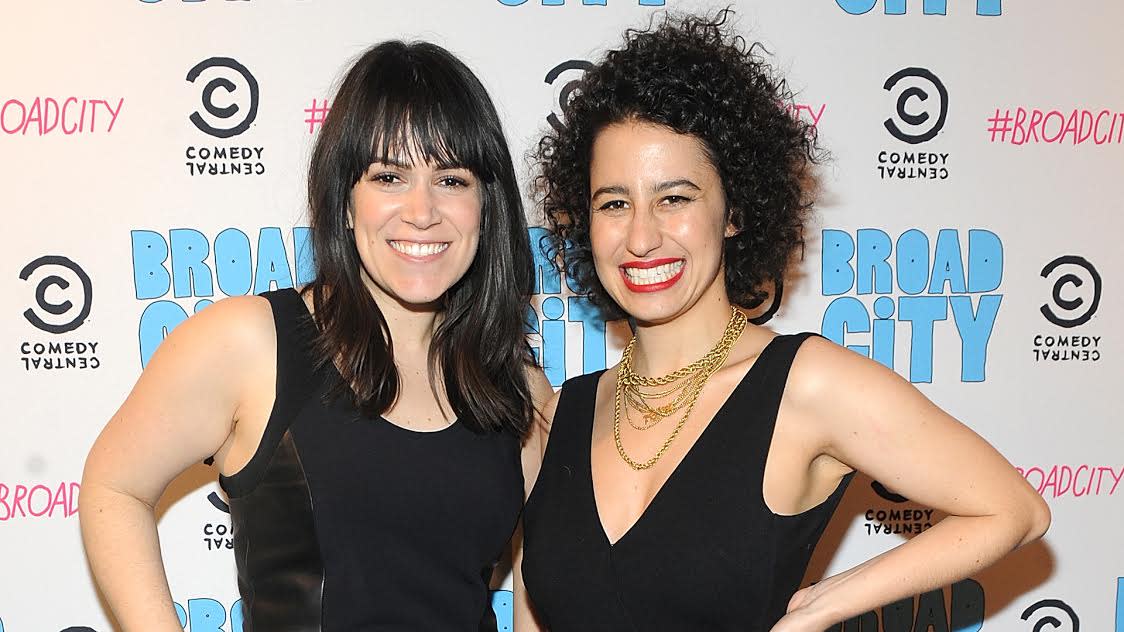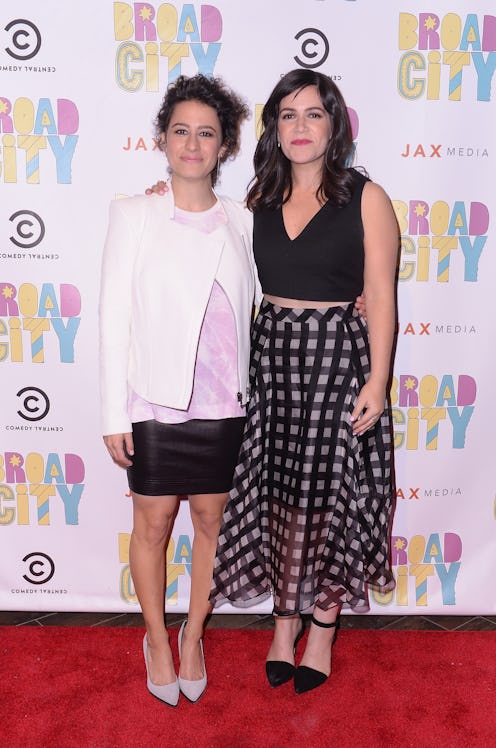Entertainment
'Broad City' on Strong Female Friendships on TV
While interviewing the current kweens of television, Broad City 's Abbi Jacobson and Ilana Glazer, Katie Couric experienced what I'm 110% is my most perfect day ever: After spending the day chillin' with Jacobson and Glazer around NYC and talking about the women's beginning as web series stars, Couric discussed the duo's writing process, as well as their thoughts on how strong female friendships should be the norm on television these days. Hearing these two talk about anything relating to feminism and empowerment is always a treat — their words on the subject are consistently wise — but this interview was particularly important. (Jacobson also explains "sex friends" to Katie, which is just wonderful to watch).
As Jacobson explains to Couric in the interview:
“The show’s being praised for having a strong female friendship, and it’s like, that should be everywhere! Why is this not the norm? It’s kind of ridiculous.”
When Broad City first premiered two years ago, it resonated with viewers not only for its depiction of the craziness that is living in NYC in your 20s, but also for its strong depiction of female friendships. As producer (and ultimate kween) Amy Poehler put it in a 2014 interview with The Huffington Post, "We really wanted to make sure that everybody knew that at the end of the day, this show was a love story between Abbi and Ilana." It's a refreshing perspective not often seen on television, which is indicative of how dire the state of female friendship on TV was before Broad City.
In the series, Jacobson and Glazer's characters' — also named Abbi and Ilana — friendship is codependent, close, and messy, but also genuinely full of love. Even if they momentarily fight, it's clear that their bond is unbreakable; compared to other shows that depict female besties resorting to backstabbing and revenge plots (see: most teen shows), it's a refreshing change that was much-needed in television. In fact, Broad City's depiction of female friendship should set the standard for television shows in the future, and inspire writers to give us women that do not view each other as competition. Too often are women on TV shows conniving and competitive — this neither reflects reality nor sends a good message about empowering women.
The success of Broad City should inspire the media to show us female characters who are strong, both independently and together — characters who are not competitors, but collaborators. When we see a strong female friendship on television, it should not be remarkable but instead, as Jacobson says, "the norm."
Watch the full feature below:

